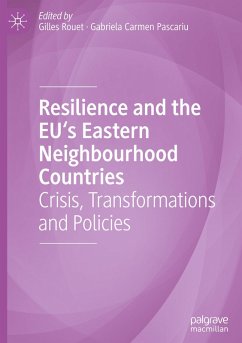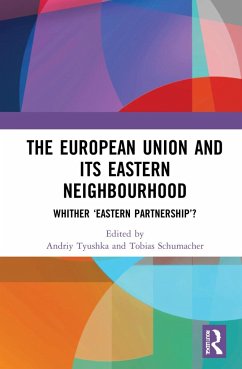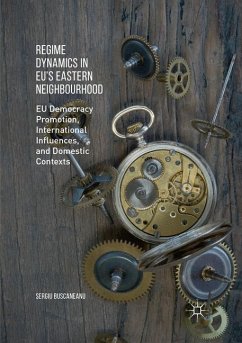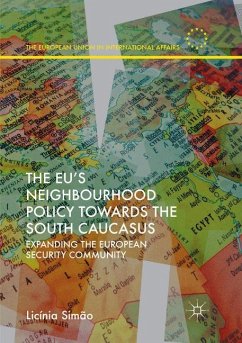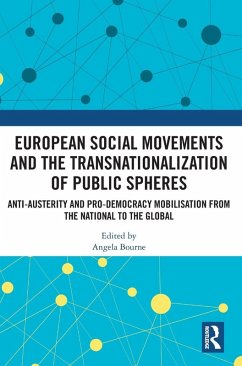
Transnationalization and Regulatory Change in the EU's Eastern Neighbourhood
Ukraine between Brussels and Moscow
Versandkostenfrei!
Versandfertig in 1-2 Wochen
160,99 €
inkl. MwSt.
Weitere Ausgaben:

PAYBACK Punkte
80 °P sammeln!
Using Ukraine as a primary case study, this book examines why convergence with transnational market rules varies across different policy sectors within the Eastern neighbourhood countries. It analyzes the drivers of regulatory change and explores the conditions under which post-Soviet economies integrate with international markets. In doing so, it argues that the impetus for regulatory change in the Eastern neighbourhood lies in specific strategies of domestic empowerment applied by external actors. Furthermore, through the study of the impact of Western and Russian transnational actors, the b...
Using Ukraine as a primary case study, this book examines why convergence with transnational market rules varies across different policy sectors within the Eastern neighbourhood countries. It analyzes the drivers of regulatory change and explores the conditions under which post-Soviet economies integrate with international markets. In doing so, it argues that the impetus for regulatory change in the Eastern neighbourhood lies in specific strategies of domestic empowerment applied by external actors. Furthermore, through the study of the impact of Western and Russian transnational actors, the book concludes that Russia's presence does not necessarily hinder the integration of the EU's Eastern neighbours with international markets. Instead, Russia both weakens and strengthens domestic support for convergence with transnational market rules in the region.






